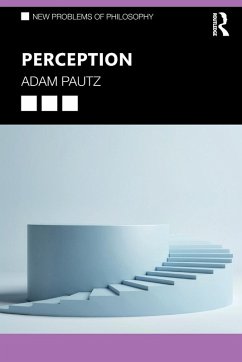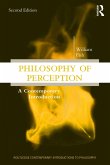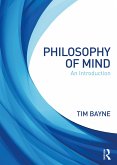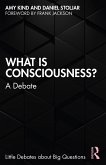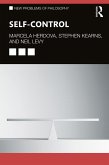Perception is one of the most pervasive and puzzling problems in philosophy, generating a great deal of attention and controversy in philosophy of mind, psychology and metaphysics. If perceptual illusion and hallucination are possible, how can perception be what it intuitively seems to be, a direct and immediate access to reality? How can perception be both internally dependent and externally directed?
Perception is an outstanding introduction to this fundamental topic, covering both the perennial and recent work on the problem. Adam Pautz examines four of the most important theories of perception: the sense datum view; the internal physical state view; the representational view; and naïve realism, assessing each in turn. He also discusses the relationship between perception and the physical world and the issue of whether reality is as it appears.
Useful examples are included throughout the book to illustrate the puzzles of perception, including hallucinations, illusions, the laws of appearance, blindsight, and neuroscientific explanations of our experience of pain, smell and color. The book covers both traditional philosophical arguments and more recent empirical arguments deriving from research in psychophysics and neuroscience.
The addition of chapter summaries, suggestions for further reading and a glossary of terms make Perception essential reading for anyone studying the topic in detail, as well as for students of philosophy of mind, philosophy of psychology and metaphysics.
Perception is an outstanding introduction to this fundamental topic, covering both the perennial and recent work on the problem. Adam Pautz examines four of the most important theories of perception: the sense datum view; the internal physical state view; the representational view; and naïve realism, assessing each in turn. He also discusses the relationship between perception and the physical world and the issue of whether reality is as it appears.
Useful examples are included throughout the book to illustrate the puzzles of perception, including hallucinations, illusions, the laws of appearance, blindsight, and neuroscientific explanations of our experience of pain, smell and color. The book covers both traditional philosophical arguments and more recent empirical arguments deriving from research in psychophysics and neuroscience.
The addition of chapter summaries, suggestions for further reading and a glossary of terms make Perception essential reading for anyone studying the topic in detail, as well as for students of philosophy of mind, philosophy of psychology and metaphysics.
"Adam Pautz's Perception is the best general treatment of theories of perceptual experience that I've ever read. Each chapter is packed with fascinating arguments." - Jeff Speaks, Inquiry
"Adam Pautz has written a terrific introduction to the philosophy of perception. Not just a lucid and fascinating tour of the subject for undergraduates and graduate students, Perception will be of great interest to specialists in the philosophy of mind and cognitive science." - Alex Byrne, Massachusetts Institute of Technology, USA
"Adam Pautz's excellent book is an introduction to the philosophy of perception within the analytic philosophical tradition. ... While the book targets primarily upper-level undergraduate and graduate students, the novelty of some of its empirical arguments will be of interest to postdoctoral students as well as professional philosophers working on the philosophy of perception. ... Through its careful examination of the character question, it provides a fertile ground for a fruitful debate about the role of neuroscience in solving the puzzle of perception." - Dimitria Electra Gatzia, Notre Dame Philosophical Reviews
"A superb book, which would be great for an upper-level undergrad or grad class on philosophy of perception. The no-nonsense clarity, philosophical subtlety and thoroughness are reminiscent of authors like David Armstrong and David Lewis. I'm sure it will become a classic text in the literature on perception." - Geoffrey Lee, University of California - Berkeley, USA
"An exemplary introduction to the subject. The clarity with which it is written makes it absolutely perfect for use by advanced undergraduates and postgraduates, but the book also contains all sorts of ideas, suggestions and arguments that will be of interest to professional philosophers of mind and cognitive scientists working on perception." - Thomas Raleigh, University of Luxembourg
"Adam Pautz has written a terrific introduction to the philosophy of perception. Not just a lucid and fascinating tour of the subject for undergraduates and graduate students, Perception will be of great interest to specialists in the philosophy of mind and cognitive science." - Alex Byrne, Massachusetts Institute of Technology, USA
"Adam Pautz's excellent book is an introduction to the philosophy of perception within the analytic philosophical tradition. ... While the book targets primarily upper-level undergraduate and graduate students, the novelty of some of its empirical arguments will be of interest to postdoctoral students as well as professional philosophers working on the philosophy of perception. ... Through its careful examination of the character question, it provides a fertile ground for a fruitful debate about the role of neuroscience in solving the puzzle of perception." - Dimitria Electra Gatzia, Notre Dame Philosophical Reviews
"A superb book, which would be great for an upper-level undergrad or grad class on philosophy of perception. The no-nonsense clarity, philosophical subtlety and thoroughness are reminiscent of authors like David Armstrong and David Lewis. I'm sure it will become a classic text in the literature on perception." - Geoffrey Lee, University of California - Berkeley, USA
"An exemplary introduction to the subject. The clarity with which it is written makes it absolutely perfect for use by advanced undergraduates and postgraduates, but the book also contains all sorts of ideas, suggestions and arguments that will be of interest to professional philosophers of mind and cognitive scientists working on perception." - Thomas Raleigh, University of Luxembourg

